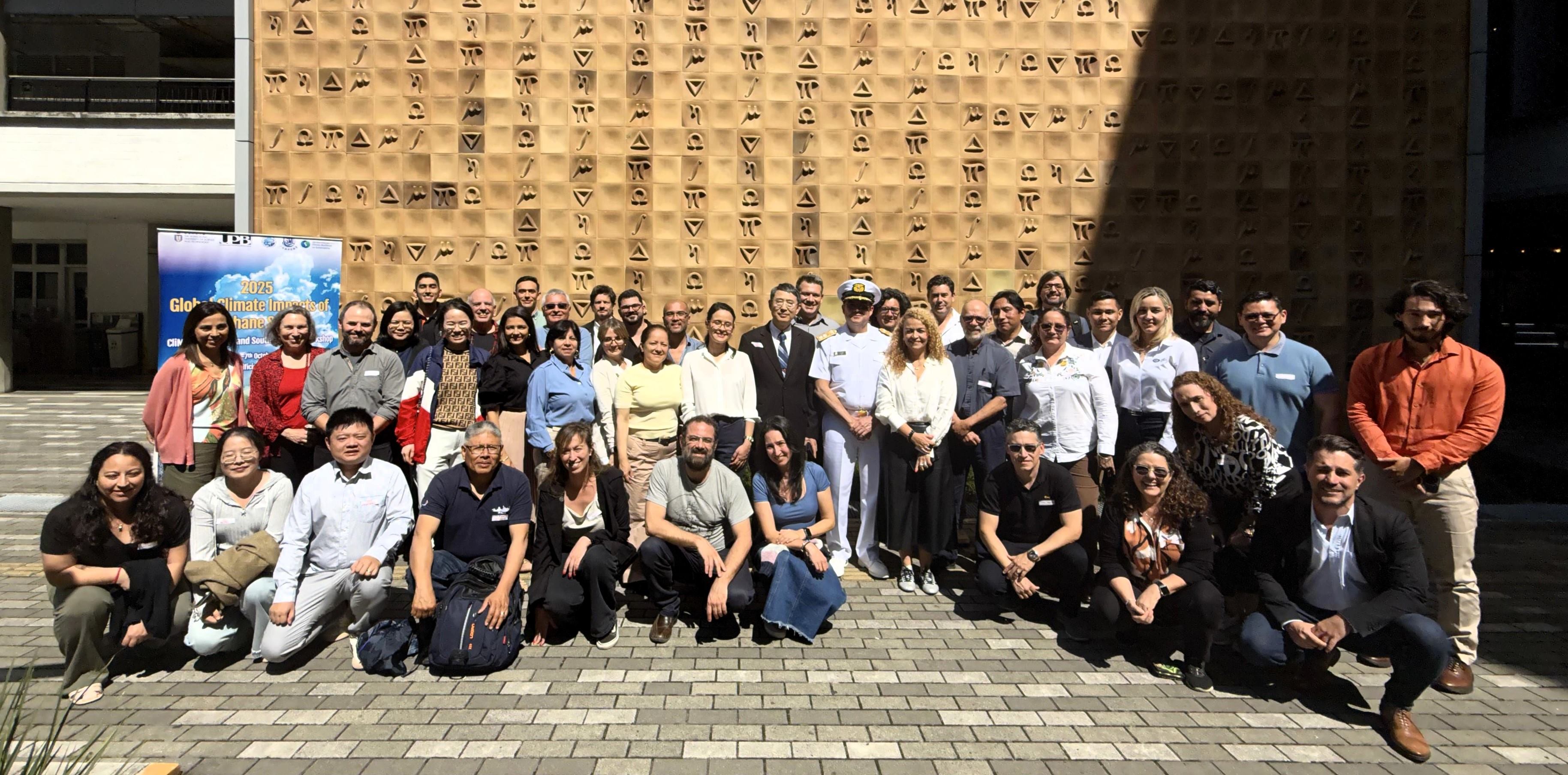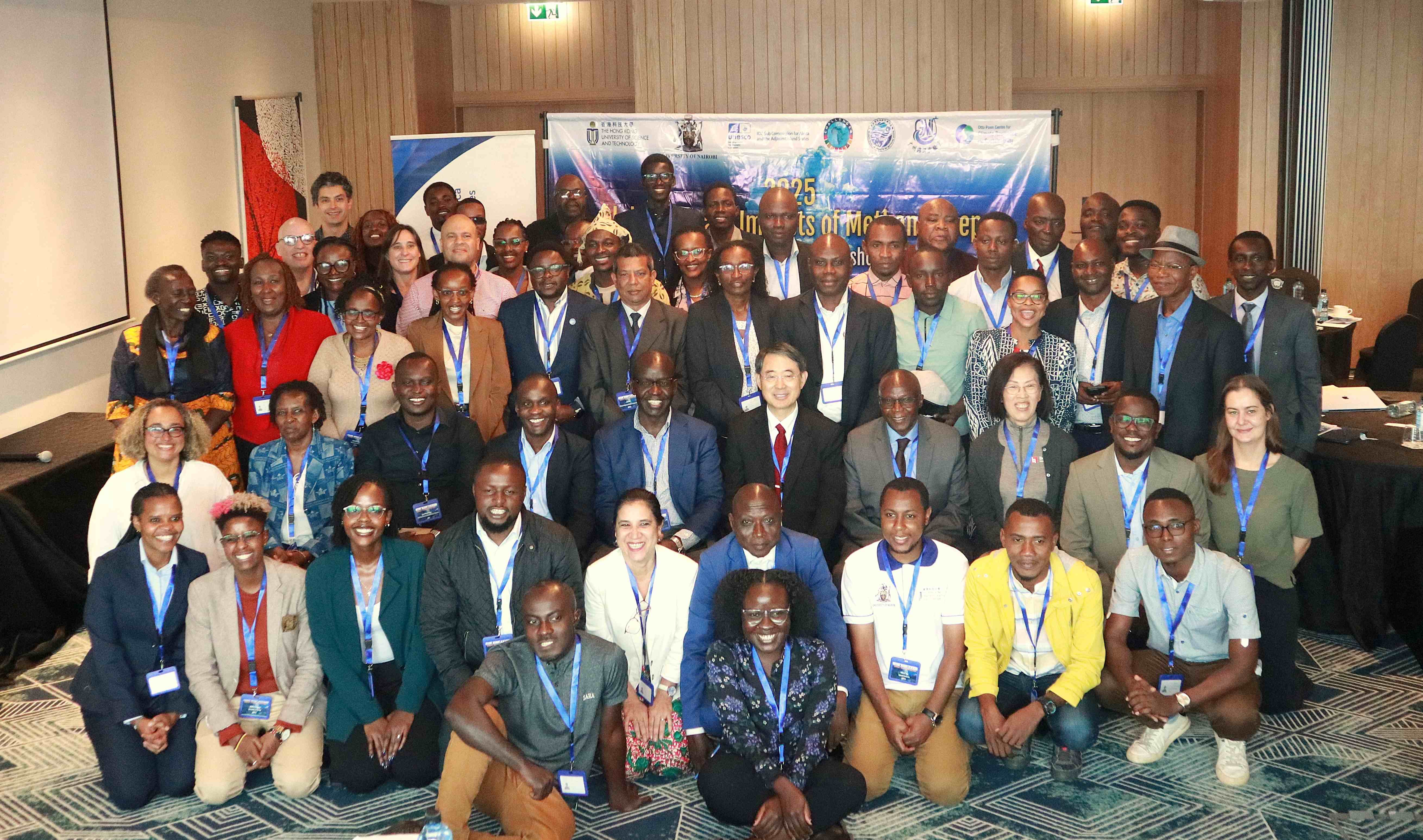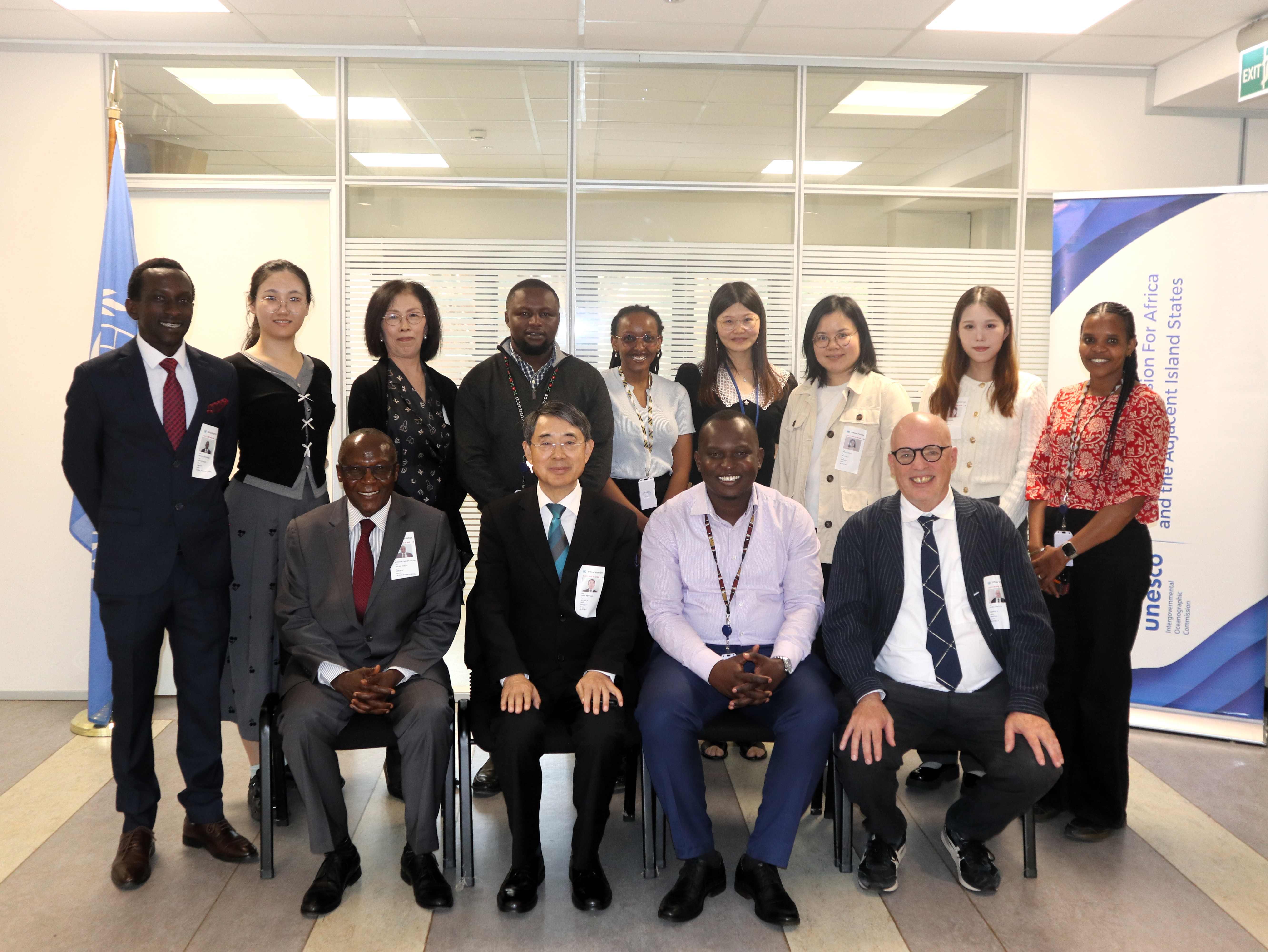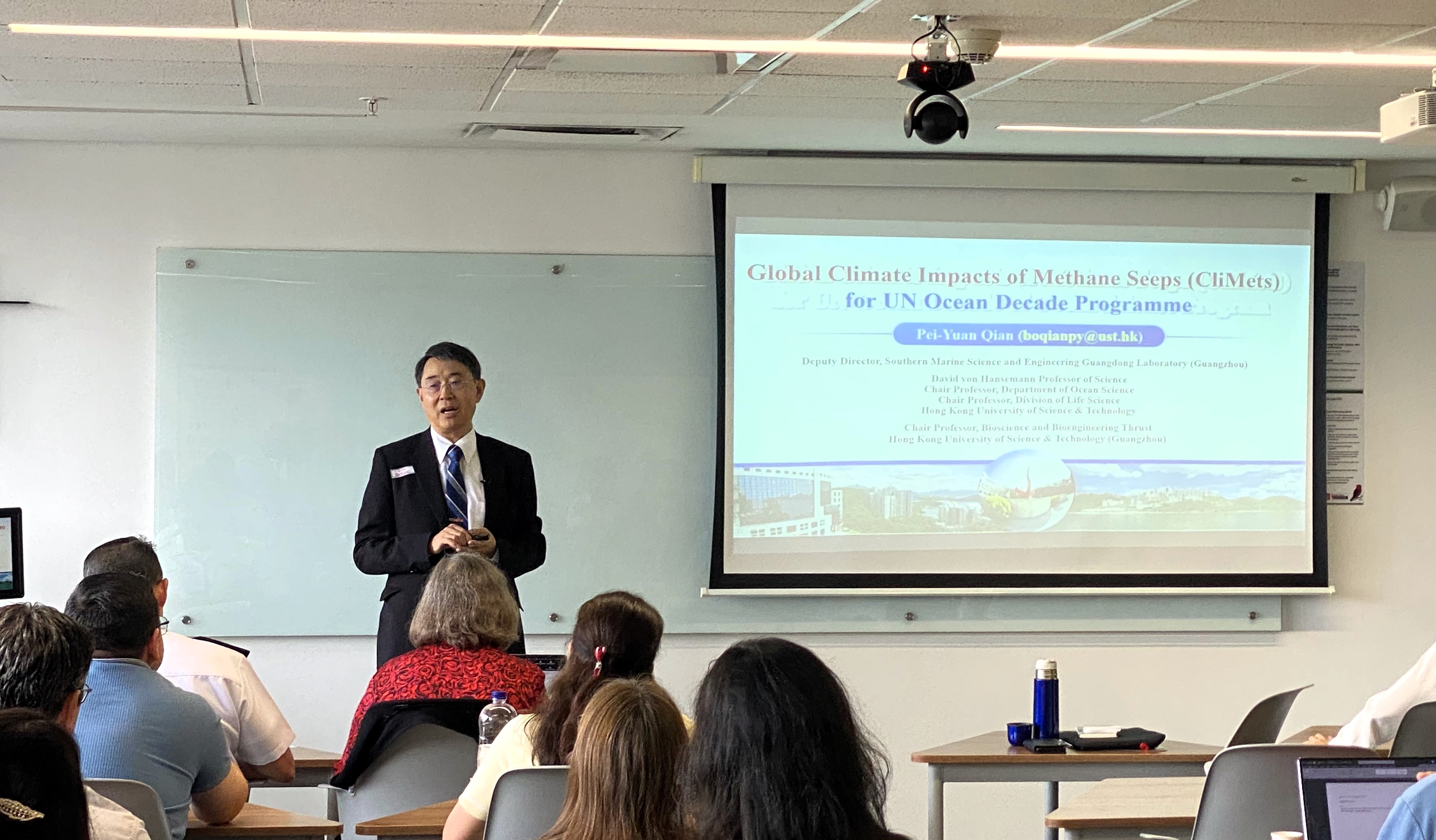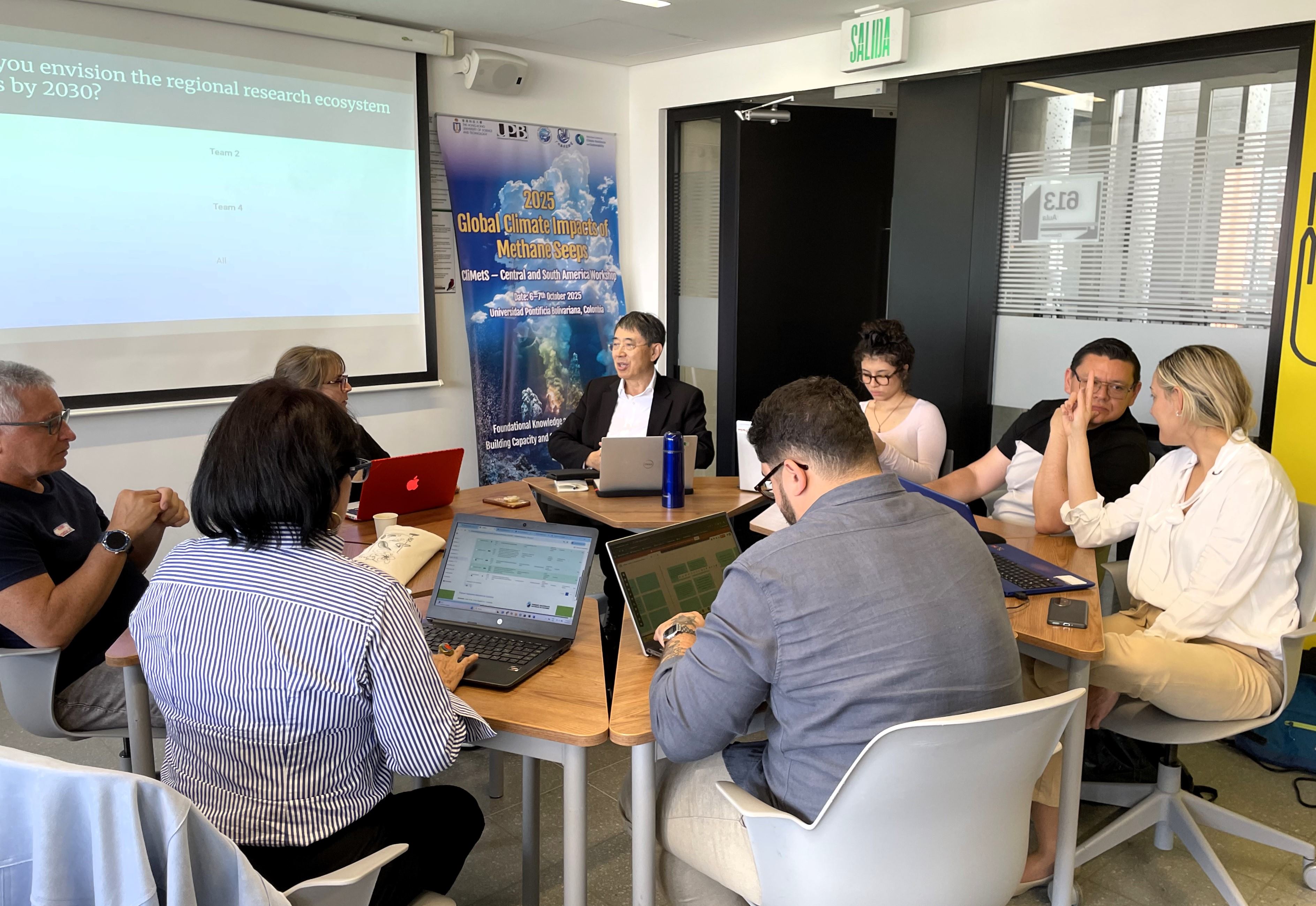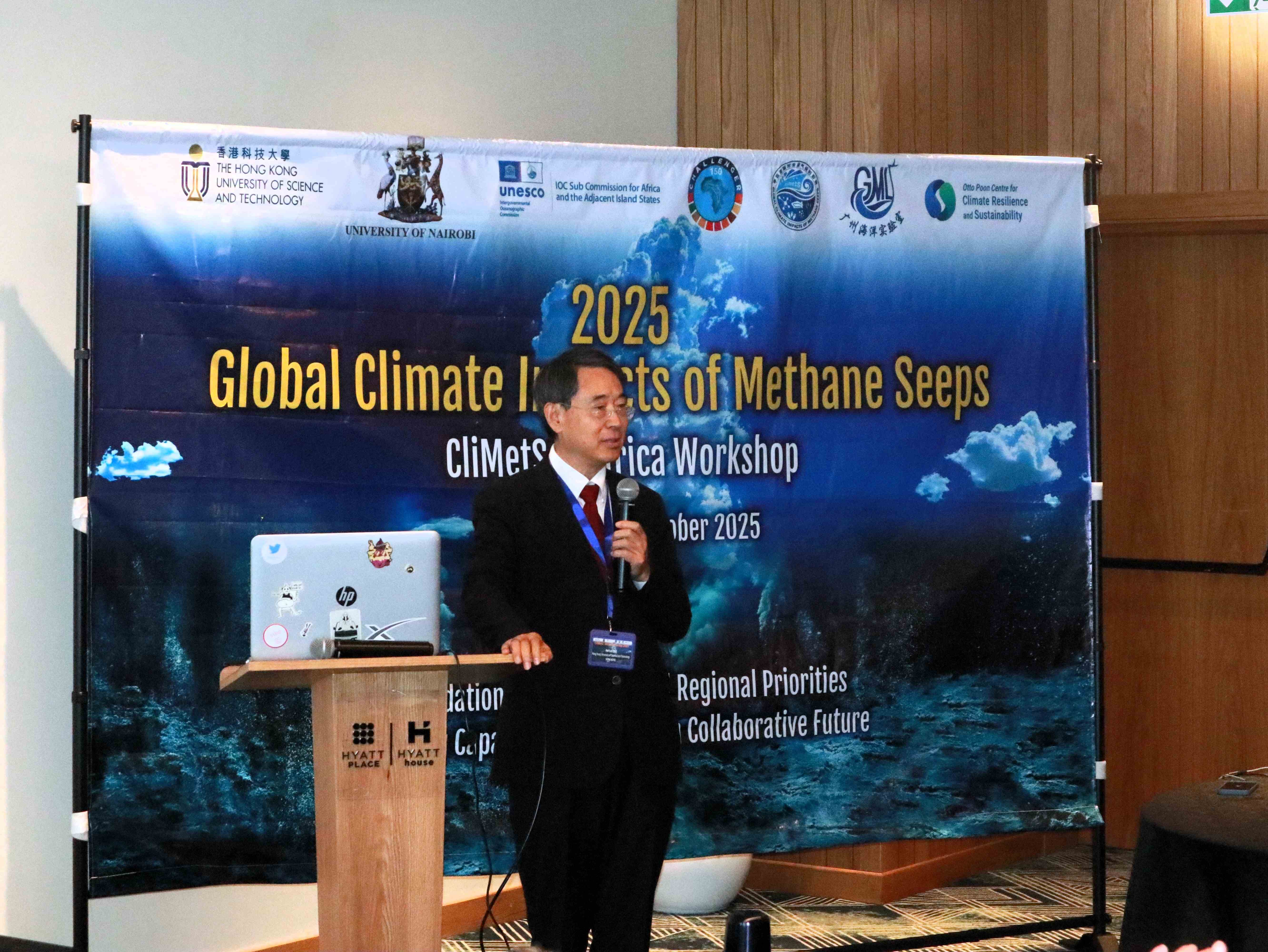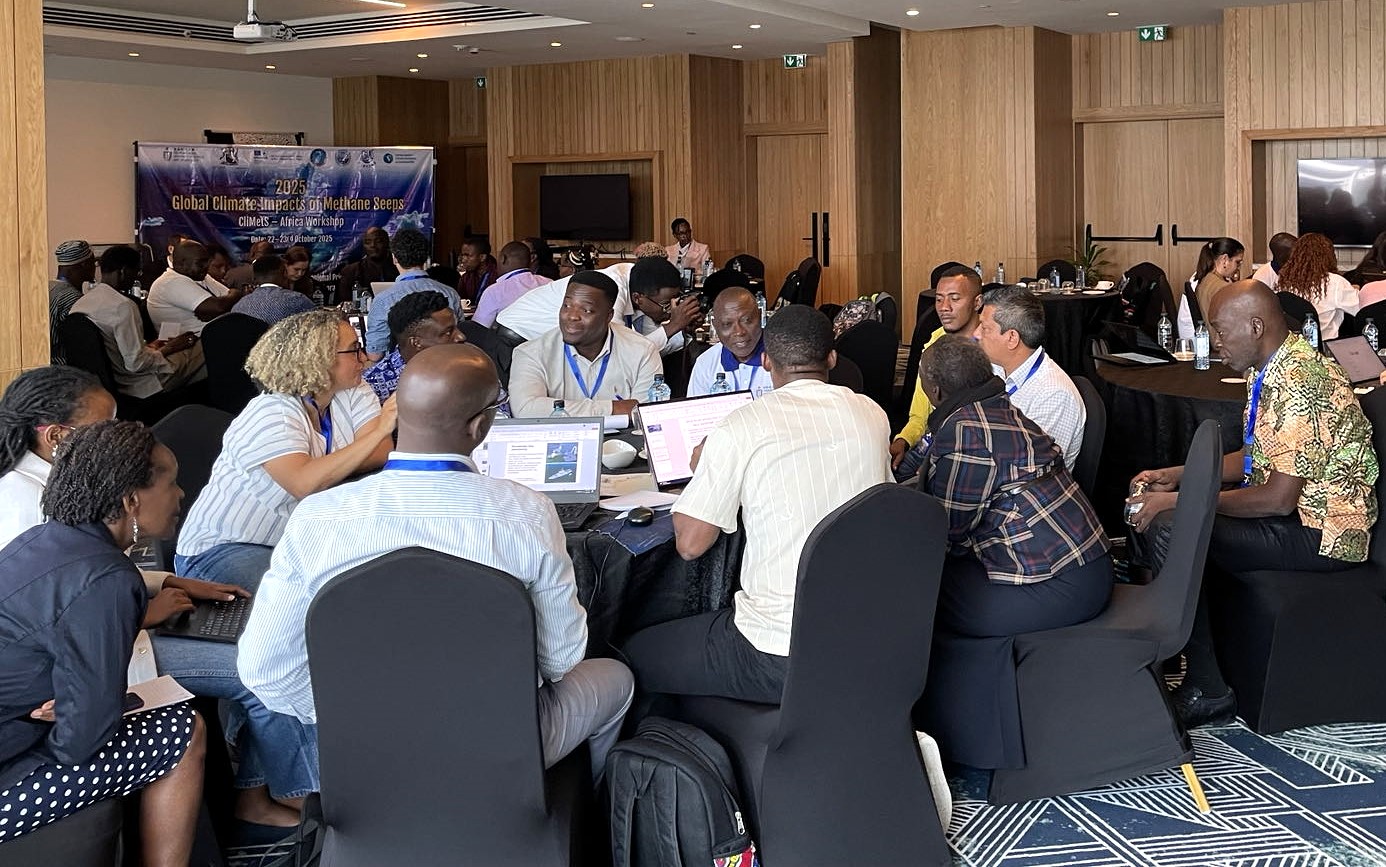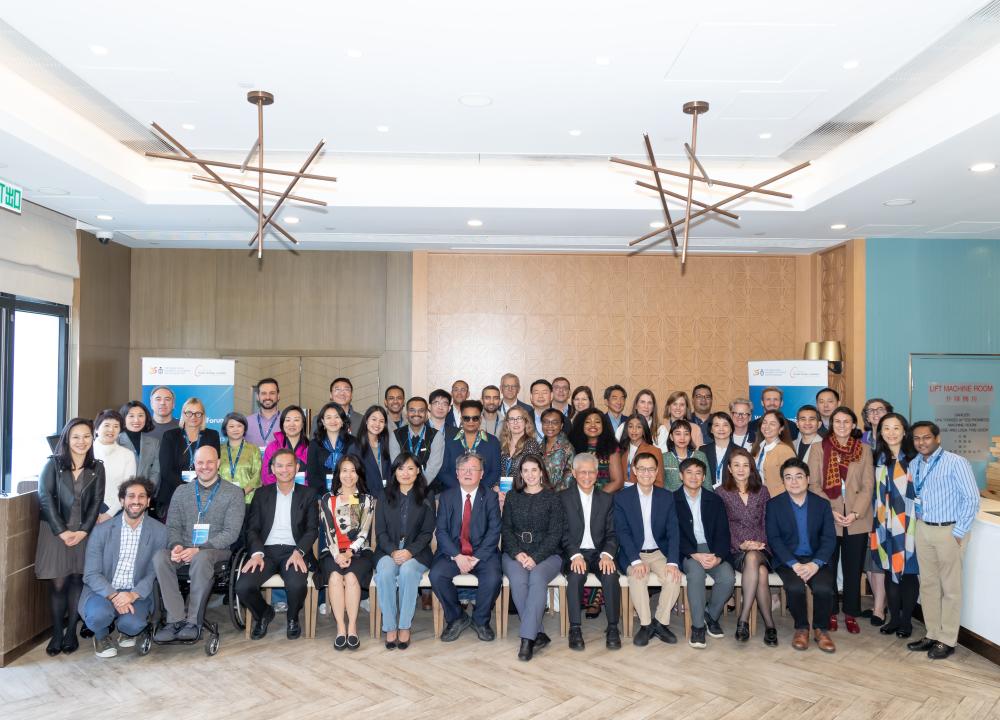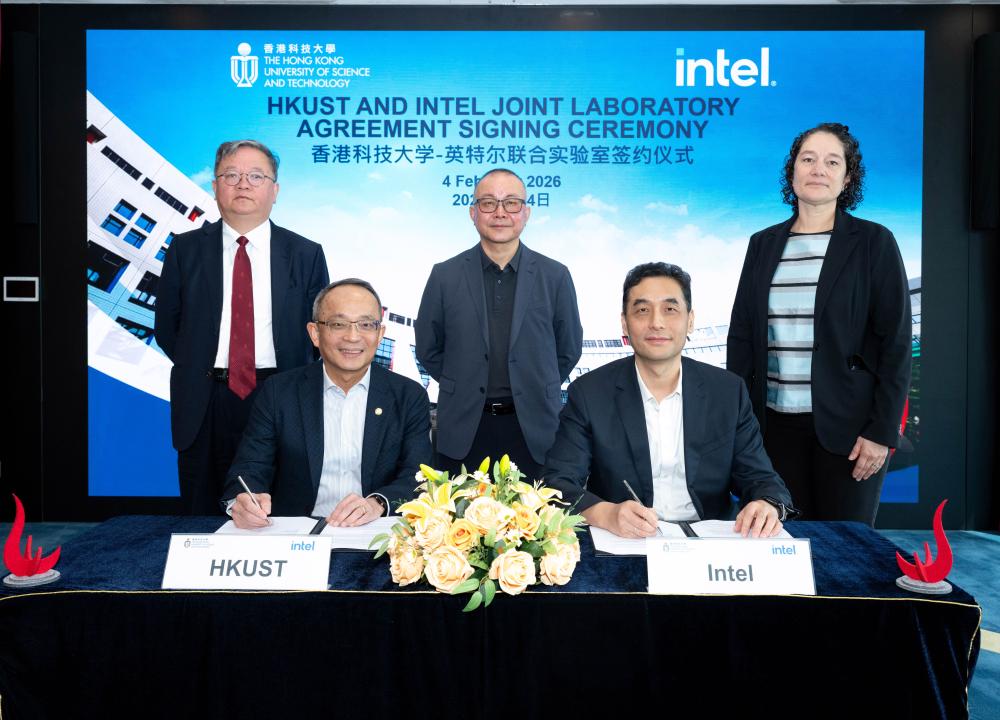HKUST Unites International Experts in CliMetS Initiative to Tackle Climate Threat of Seabed Methane Seeps
A UN Ocean Decade-Endorsed Action Advances Global Research with Landmark Workshops in Latin America and Africa
The Hong Kong University of Science and Technology (HKUST) has successfully launched the Global Climate Impact of Methane Seeps (CliMetS) Initiative through a pivotal collaboration with the Southern Marine Science and Engineering Guangdong Laboratory (Guangzhou) (GML) and over 200 experts worldwide. Endorsed as a UN Ocean Decade Action, CliMetS is dedicated to mapping seabed methane seeps across the world’s oceans and quantifying their impact on global climate systems. Recently, HKUST co-led two milestone workshops in South America and Africa, galvanizing global efforts to address methane seep research gaps and fostering cross-continental partnerships.
Bridging the Gap: Knowledge Exchange and Capacity Sharing
Methane is a potent greenhouse gas, with a warming potential over 80 times that of carbon dioxide over a 20-year period. Vast reservoirs stored under the seabed could significantly accelerate climate change if released, yet the scale and processes of these seeps remain one of Earth’s most pressing scientific mysteries. To address this critical gap in understanding, Prof. QIAN Peiyuan, Chair Professor of the Department of Ocean Science at HKUST, Deputy Director of GML and Director of the Hong Kong Branch of GML, is spearheading CliMetS as its Program Director and Management Committee Chair, striving to transform fragmented and localized studies into a unified mission.
Prof. Qian highlighted the significance of the CliMetS initiative: “A core objective of CliMetS is to promote knowledge exchange and capacity sharing, particularly in Global South countries that often lack critical resources such as skilled talent, infrastructure, and advanced technologies. By leveraging the state-of-the-art research technologies and facilities from China and other developed countries, including China’s deep-sea research vessel Shen Hai Yi Hao and the manned submersible Jiaolong, we aim to organize international joint cruises for large-scale methane seep exploration across the globe.” He emphasized that regional research agendas must be co-designed and co-owned by regional stakeholders.
Regional Workshops Forge a Collaborative Path and Deliver Actionable Outcomes
Co-initiated by key institutions—including GML, HKUST, the South China Sea Institute of Oceanology of the Chinese Academy of Sciences, the China Deep Ocean Affairs Administration, the Federal University of Rio de Janeiro, and the University of Nairobi — CliMetS has gained significant momentum through a series of regional workshops, bringing together local experts to co-define research priorities and co-formulate actionable plans. To date, the initiative has united 217 scientists from 138 institutions across 53 countries, with nearly 80 new participants joining through recent workshops. These concerted efforts have successfully forged a cohesive global research community and delivered concrete outcomes.
Two landmark workshops, co-led by HKUST, were held in South America and Africa in October:
CliMetS-Central and South America Workshop in Colombia: This event brought together over 40 scholars, government officials, and business leaders from 12 countries across the Americas. Key outcomes included the development of a visionary research roadmap and the planning of a future CliMetS international research cruise dedicated to capacity sharing in Latin America. Participants identified the lack of regional coordination and infrastructure as the main obstacles to advancing methane seep research. They agreed that CliMetS would serve as a much-needed platform to unify regional efforts, foster collaboration between science and policy, and elevate the regional research to a new level.
CliMetS-Africa Workshop in Kenya: Following this success, the Africa workshop convened over 70 experts from 17 countries across the continent to take stock of the regional knowledge and capacity, define research priorities, and develop regional action plans to chart the way forward. The discussions yielded important results, including a comprehensive understanding of the current state of regional research and the opportunities to leverage the existing infrastructures built by IOC-UNESCO Africa and other UN agencies in the region. As a major step forward, participants identified key priority areas for future studies and promptly formed two groups, each electing a dedicated management team to oversee cruise planning and coordination.
Reflecting on the success of these gatherings, Prof. Qian added, "The overwhelmingly positive response and strong support from experts, and the active and enthusiastic engagement of IOC- UNESCO offices and governments in both regions underscored the global significance and transformative potential of CliMetS. All the participants agreed that CliMetS fills a critical void by integrating regional efforts and to promoting cross-boundary collaborations, extending its impact far beyond the scientific communities. They expressed deep appreciation for the leadership of GML and HKUST in spearheading and implementing the CliMetS initiative, reaffirming the value and importance of our efforts."
Looking Ahead: A Decade of Discovery
With a solid foundation established, CliMetS is now focused on an ambitious future agenda. The initiative plans to expand its global reach with workshops in other key regions, integrate the findings and priorities from the Americas and Africa into a consolidated global action plan, and drive forward large-scale campaigns, such as the development of a real-time, global methane seep observatory network, to decisively advance the field. The ultimate goal is to provide the robust scientific data needed to inform more accurate international climate models and policy decisions.
About The Hong Kong University of Science and Technology
The Hong Kong University of Science and Technology (HKUST) (https://hkust.edu.hk/) is a world-class university known for its innovative education, research excellence, and impactful knowledge transfer. With a holistic and interdisciplinary pedagogy approach, HKUST was ranked 6th in the QS Asia University Rankings 2026, 3rd in the Times Higher Education’s Young University Rankings 2024, and 19th globally and 1st in Hong Kong in the Times Higher Education’s Impact Rankings 2025. Thirteen HKUST subjects were ranked among the world’s top 50 in the QS World University Rankings by Subject 2025, with “Data Science and Artificial Intelligence” coming in 17th worldwide and first in Hong Kong. Our graduates are highly competitive, consistently ranking among the world’s top 30 most sought-after employees. In terms of research and entrepreneurship, over 80% of our work was rated “internationally excellent” or “world leading” in the Research Assessment Exercise 2020 of the Hong Kong’s University Grants Committee. As of July 2025, HKUST members have founded over 1,900 active start-ups, including 10 Unicorns and 17 exits (IPO or M&A).
For media enquiries, please contact:
PR and Media Team, Global Engagement and Communication Office
Email: media@ust.hk










